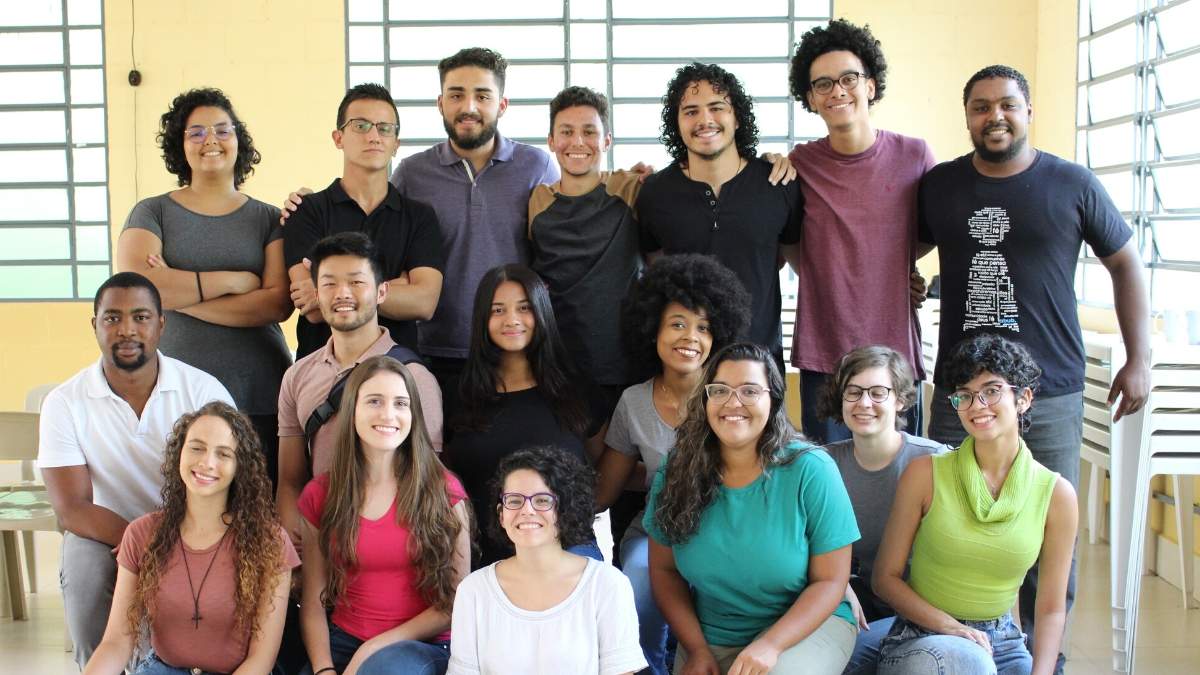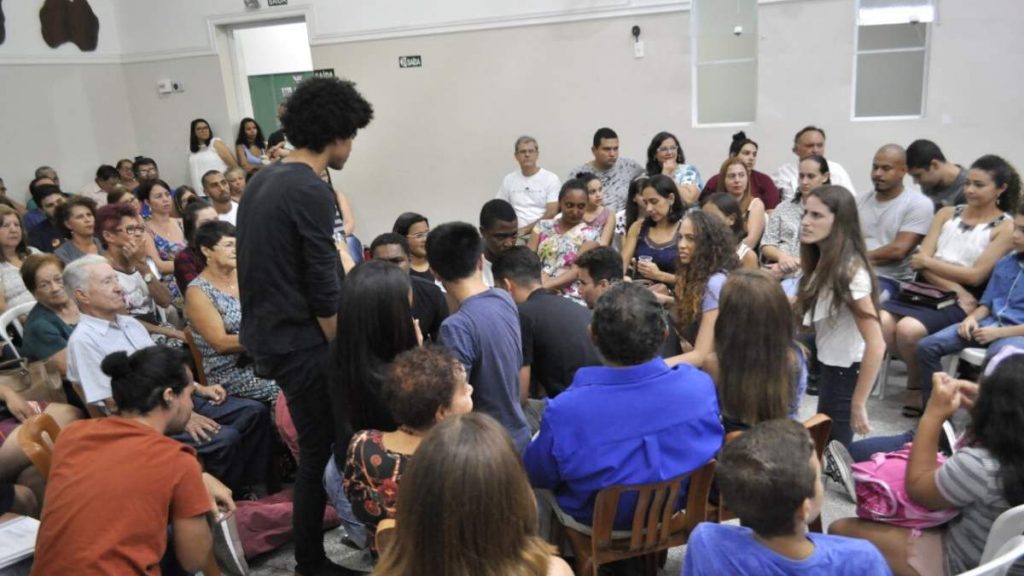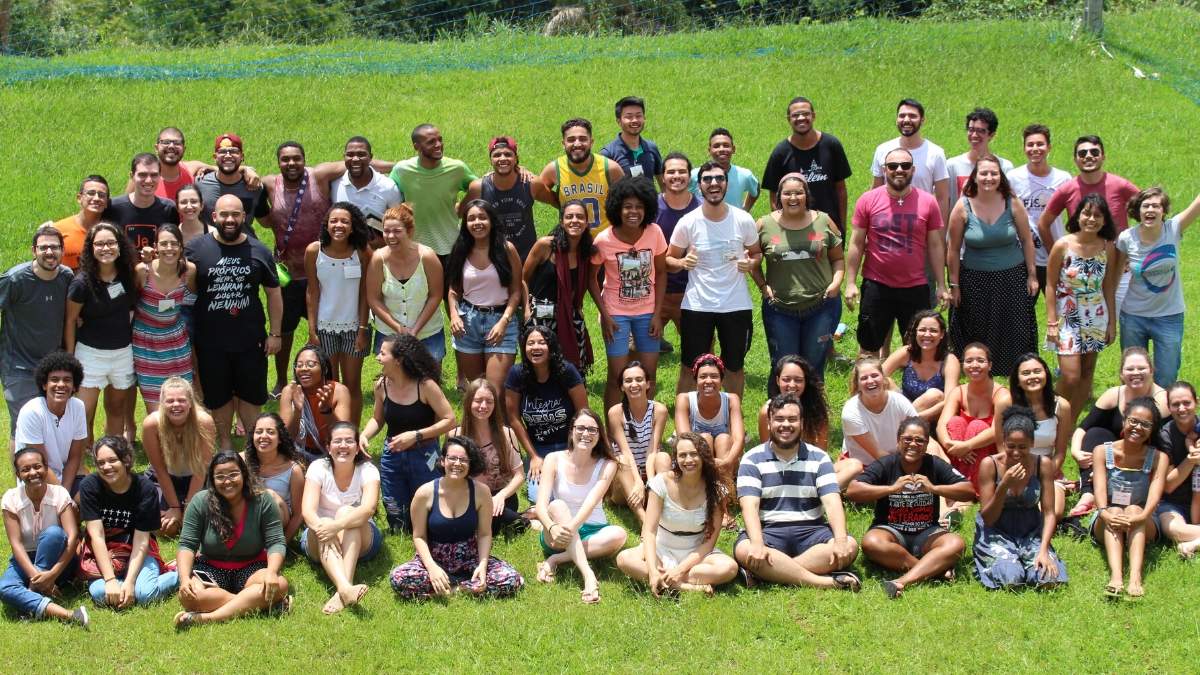EDITOR’S NOTE – We incorrectly published an earlier version of this article that did not fully and correctly incorporate the most recent input of CECE staff and students. The error was ours; we apologise for the mistake and we regret if the content has caused any concern and confusion. The version below properly reflects the views of the CECE members involved in the piece. We are grateful for their collaboration on this Conexión issue, and we hope it provides a useful point of reflection for the wider fellowship on questions of justice in your own context.
If you are a university student in Ecuador, conversations on campus can be stressful. Living in a country historically divided by social class, region, race, and religion is hard. It means that a simple comment over lunch can turn into a full-on discussion. It might mean choosing to keep silent while your classmates express their opinions regarding the current political situation because you know that speaking up will only lead to tension.
The evidence of polarization can also be seen online. Some students re-share questionable memes or information which can alienate peers who don’t share their culture, background, or ideology.
A Country Divided
In October 2019, Ecuador’s divisive issues reached a boiling point. Protesters filled the streets after the president cut 40-year-old petrol subsidies and released labor and tax reforms. Some say these protests were the result of hundreds of years of oppression and tension between social classes, political ideologies, and regional inequality. Differences between standard of living in the urban centers and rural areas are significant. Those who live in rural areas have less access to services such as health, education and connectivity to the internet, while those in the city have better access to these basic services.
A further division is the historical regionalism between the coastal and Andean provinces of the country. Religion, race, immigration policies and political ideology continue to be sensitive topics with which is it is a challenge for students to maintain respectful conversations with those who view the world differently. During the October protests, university students (including CECE students) and campuses served both protestors and police as shelters for food, childcare and medical attention. This was a clear sign of building bridges in a moment of conflict.
Engaging Intelligently
CECE Ecuador is also equipping students with practical tools to build bridges through dialogue. Ruth Hicks de Olmedo, the National Director for CECE, says that many students have never observed healthy discussions before. She says,
“Respectful dialogues are not something that are commonly modeled in family, church or political spheres. Maybe in some academic spaces, like forums, but certainly not in the public arena.”
The movement is equipping students for these conversations by teaching and modeling how to engage potentially polarized topics in a thoughtful and respectful way.
“We encourage students to use language that encourages dialogue. We want them to understand the importance of coming with a listening and learning posture even if they have a clear position about a topic. If they don’t have a clear position, they should view it as their responsibility to think and research the information they are sharing– not just passing along the latest thing that appears on Facebook.”
CECE encourages intelligent engagement in several ways. The movement publishes a weekly blog to briefly and thoughtfully explore timely issues from a Christian perspective. They have also designed training workshops to show students the connection between their faith and their life online. The movement also models healthy dialogue during their local and national events.
During these events, student leaders and staff create safe spaces to give students the language and framework to discuss potentially controversial topics. One such event is the yearly national camp, which brings students from all over the country together. Ruth says that at the beginning of camp, there are students who are apprehensive to mingle with people from outside their student group.
“We have students who, when they arrive at camp have never interacted with someone from another province. After getting to know each other, they will say ‘they are quite different from me, but it was great to get to know them. Now they are my friends!’”
By putting their healthy dialogue tips into practice, students can approach the camp with a posture of listening and learning toward others with different perspectives. As the days progress, the students are surprised to find that it was not so hard to make a new friend.
Understanding Injustice
When they are equipped to engage in dialogue, students may become more sensitive to the injustices around them. More recently, talking about the effects of coronavirus has highlighted existing inequalities within society, particularly between races and regions. These inequalities are also evident in the university context. While many public university students waited months for their classes to move online, private universities in the city accomplished this in a matter of weeks. Still, many students in rural areas lack access to the internet or technical equipment to even participate online. There are also many students who have had to reduce the classes taken or withdraw from the private universities due to the economic situation.
Many of these students come from families who depend on earning their income day by day through selling produce in local markets. Since these markets were shut down during the lockdown, families have been forced to find alternative places to sell their products. Becoming aware of issues like these along with the protests of October has helped students see their connection to deeply rooted systemic problems.
A Chance to Learn
Ultimately, CECE aims to model healthy dialogue because they believe it brings glory to the gospel. Staff member Andrea Utreras says that building bridges encourages students to look at the big picture.
“Jesus is calling every tribe, tongue, and nation. He is calling everyone. And we are to be united in him. We are also called to love people, which means loving those who are different. Loving them as a whole person, and not just because they share our faith.”
As they challenge students to engage intelligently, Andrea always encourages students to be prepared to grow.
“You will discover that maybe you are not right at all. Be prepared to be challenged. Be prepared to read more or ask another person. Be okay with saying I don’t know. And if you don’t know, it is okay. It is a chance to learn.”
What divisive issues are discouraging unity on your campus? What can you do to build bridges between yourself and those who disagree with you?










